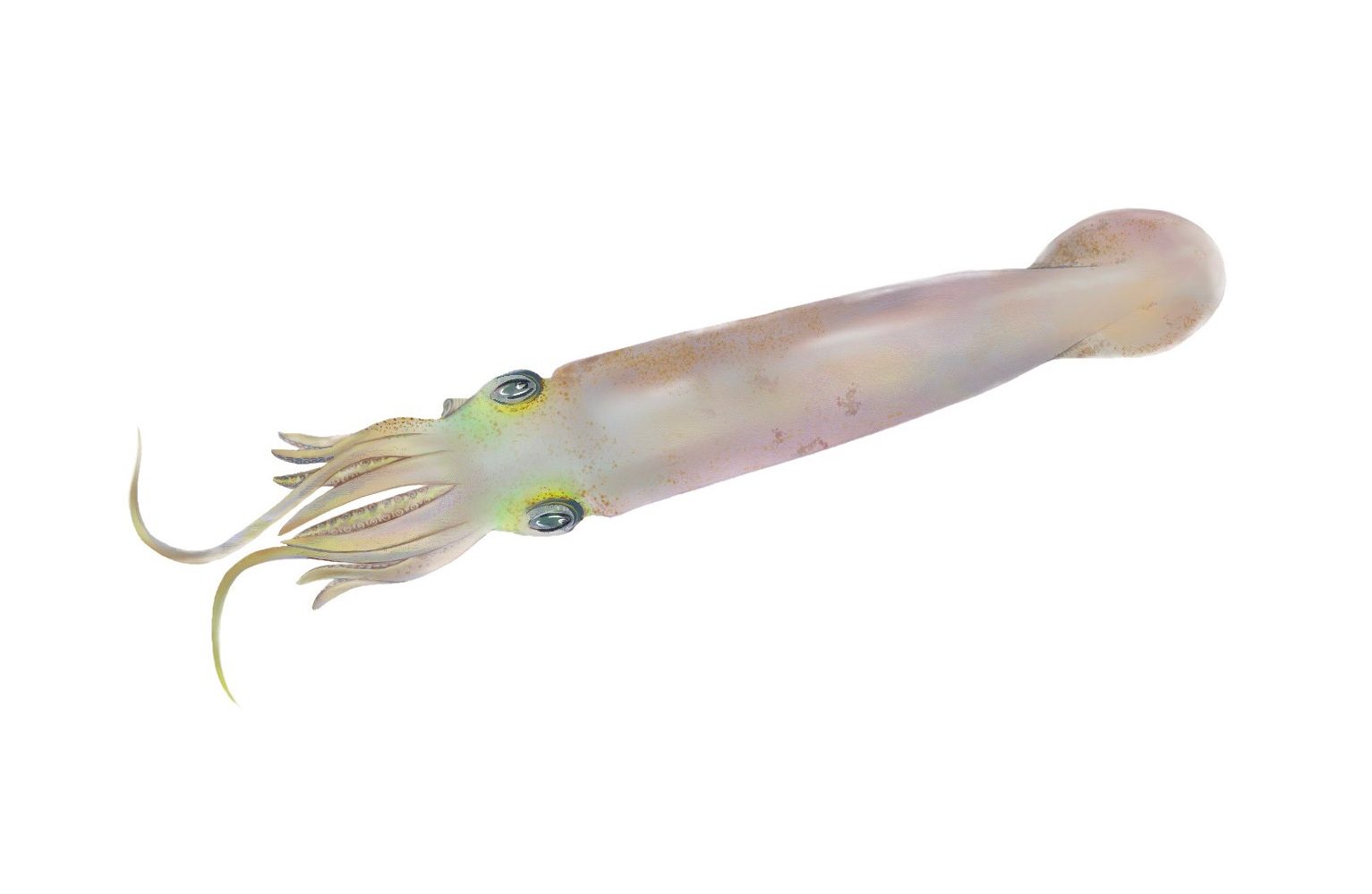Today’s representatives communicate with eight arms – the primitive ancestors of octopuses had ten tentacles. This is now documented by the oldest known fossil of a representative of the eight-armed squid (Vampyropoda) family tree. Researchers have named the roughly 328-million-year-old cephalopod in honor of President Joe Biden’s commitment to bringing science back to life.
Flexible, “finger-pointing” and very smart: the octopus, also known as the octopus, is one of the most unusual and remarkable inhabitants of the sea. They have produced many species that live in many different habitats. Their success depends on the feature that also distinguishes their name – octopus means “eight feet”. With their flexible, anti-suction attachments, they can take advantage of a multitude of food sources. Together with the vampire squid (Vampyromorpha), they form the supergroup of the so-called Vampyropoda – the eight-armed squid. The number of tentacles distinguishes it from the second large group of cephalopods: cephalopods – ten-armed squid. Among them are squid and squid, with their torpedo-shaped bodies.
An insight into evolutionary history
Relatively little is known about the evolutionary history of the eight-armed squid, as few of their soft-body structures have been preserved. The oldest fragmentary remains discovered so far are dated to about 240 million years ago. However, the process of the so-called molecular clock suggested a far-reaching evolutionary history: traces in the genome of today’s representatives of Vampyropoda suggested an age of more than 300 million years for this evolutionary line of cephalopods.
The current finding by Christopher Wallen and Neil Landman of the American Museum of Natural History in New York is consistent with this finding. They report a well-preserved fossil of an ancient eight-armed squid from the collections of the Royal Ontario Museum. It was actually discovered in 1988 in fossil deposits in Montana. But only now a detailed examination by the two paleontologists has revealed the significance of the fossil.
According to history, the creature, which is about twelve centimeters long, lived about 328 million years ago. As investigations of his body structures showed, the cephalopod showed characteristics that clearly identify him as a representative of Vampyropoda. The researchers suggest that Syllilipsimopodi Bideni is now shifting the fossil record of its group in time by about 82 million years. Perhaps the most interesting aspect is its number of arms: “This is the first and only representative of the eight-armed squid that has ten functional appendages,” Wallen says.
Originally there were ten
As he and colleagues explain, this result confirms the assumption that the original ancestor of the eight-armed squid had ten arms. So far, this has been based on hints that the Kraken is gaining its eight arms by eliminating two units. Interestingly, in the case of the vampire squid, they are still preserved as threads – the remains of primitive weapons. “This fossil now provides the first concrete confirmation that these cephalopods originally had ten arms,” Wallen says.
As can be seen from the analyzes, two arms in Syllipsimopodi Bideni were elongated compared to the other eight – similar to modern representatives of the ten-armed squid. Another similarity to these cephalopods is the torpedo-shaped body. “Our results indicate that the first vampires were, at least outwardly, similar to the squid and squid that live today,” Wallen says. His colleague Landmann adds, “Silpsimopodi may also have filled a niche like that of cuttlefish and squid today, namely the niche of a medium-sized aquatic predator.” Specifically, researchers suspect that the animal used its longer arms to catch prey and its shorter arms to hold and manipulate victims.
Finally, the question remains why the primitive squid is called Joe Biden of all people. Apparently, this had a political motive with a more intrinsic connection to science: “The plans put forward by the new president to combat anthropogenic climate change and his public opinion that politicians should listen to scientists inspired me to this label,” he says. Whale.
Source: American Museum of Natural History, Yale University, article: Nature Communications, doi: 10.1038/s41467-022-28333-5

“Alcohol buff. Troublemaker. Introvert. Student. Social media lover. Web ninja. Bacon fan. Reader.”







More Stories
This is how our brain chooses what information it will remember in the long term
Up to 100 pilot whales stranded in Western Australia – Science
Huge radiation explosion from a magnetar – forschung.de